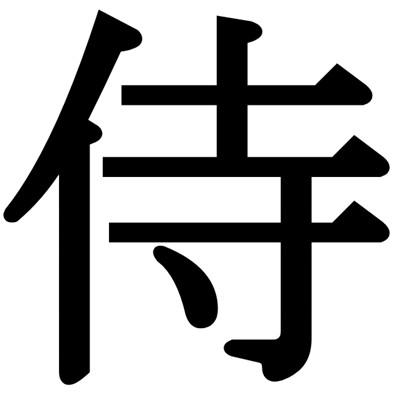
To see the previous installments, click on the following links: #1, #2, #3
Within the Date fief, any serious accusation against anyone, especially a member of the clan, was initially handled by the daimio's trusted samurai. And so, Masaki Hayato (正木隼人), Rodrigo's mentor, visited him in his cell.
He arrived with an escort, dressed in a formal kimono, and after introductions were made, he unrolled with ritual precision a document setting out the charges. Although he was overcome with emotion, he was acting as investigator, judge and messenger, and this required him to use a grave and ceremonious tone.
The charge was simple and twofold. He was charged with practising Christianity, which had been forbidden by shogunate law since 1614, and with suspected espionage on behalf of a rival clan (the Uesugi).
The Uesugi ruled the Aizu domain, southwest of the Sendai domain, and was a powerful clan close to the shogunate with whom there were historical tensions over control of the territory.
Masaki implied that he did not believe the accusations against him but that his loyalty to the clan obliged him. As spokesman, he asked him to confess or challenged him to prove his innocence at a future trial, leaving the uncertainty of his fate hanging in the air.
To be continued
Header Image:
Kanji for the word ‘samurai’. Source: Wikipedia
Guau, Druida. estás on fire. : D
While reading your story, I remembered that I've visited Kasugayama castle with my husband and daughter while living in Fukui Prefecture. The castle belonged to Uesugi Kenshin. I also visited Sendai castle for a school trip when I was a high school student. Your story is fascinating to read!
Como siempre, gracias @Coral.
I am also on a study trip to 17th century Japan (Cipango), Yumi @yumiyumayume .
Thank you very much for your corrections and your time, Uly ( @CocoPop ) and @SEQ77.
@druida That's really cool! You should visit modern Japan too!!
Con gusto. Disfruto ofreciéndote sugerencias y correcciones.
No hay de qué!
Well written, Druida. The only suggestion to change "samurai" to "samurai council" is one ways. Even high-ranking samurai disagree with each other, hence a "samurai council" makes some important decision.(Low-ranking samurai have to obey decisions by high-ranking samurai and of course their lord.}
Here are some observations about the installments you've written:
Installment 3: Rodrigo kneels on the mat. He hears the footsteps of the jailer approaching (I'm assuming the jailer is not Hayato).
Installment 4: Hayato visits Rodrigo and charges him with practicing Christianity.
Installment 5: Rodrigo kneels on the mat. Hayato visits and charges him with practicing Christianity.
Suggestions: Have Rodrigo doing something else other than kneeling in one of the installments, and remove Hayato’s duplicate arrival.
Thank you very much for your comment, @SEQ77. Just as in the previous story about Pompeii I had a more precise scaffolding of the narrative, in this virtual journey to 17th century Japan I still don't have a very clear structure and I am quite hesitant about the general events of the plot.